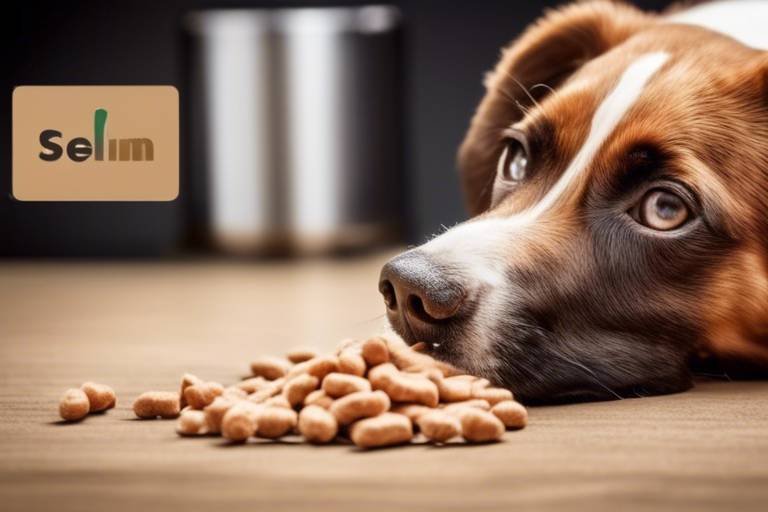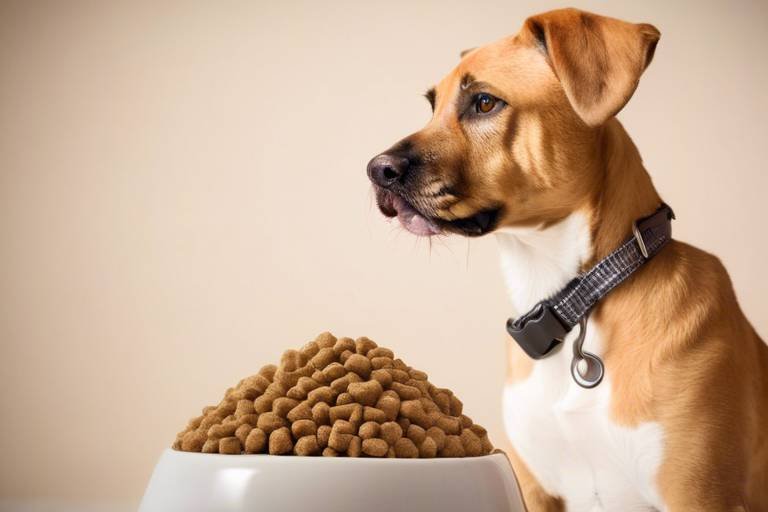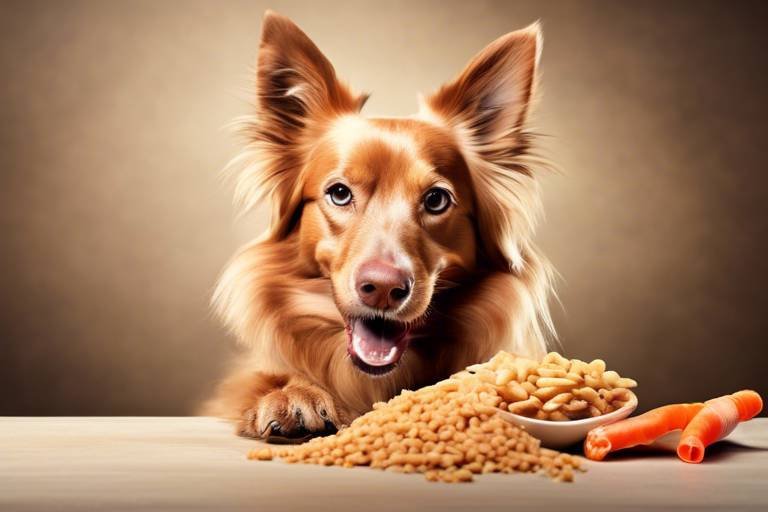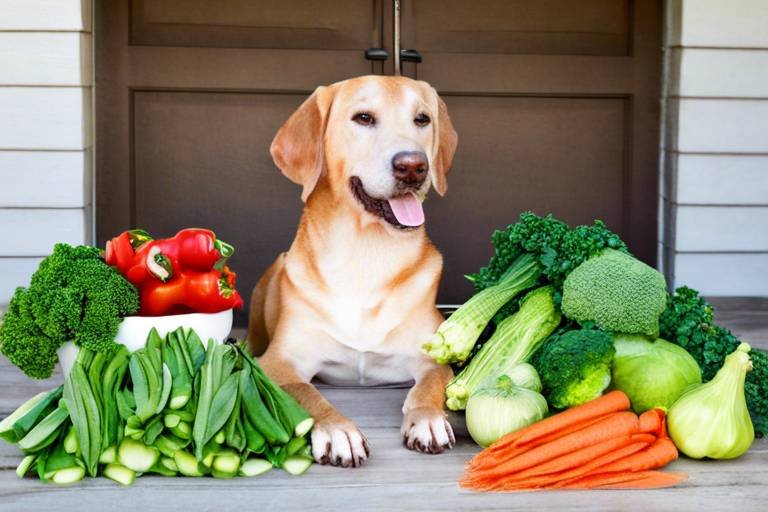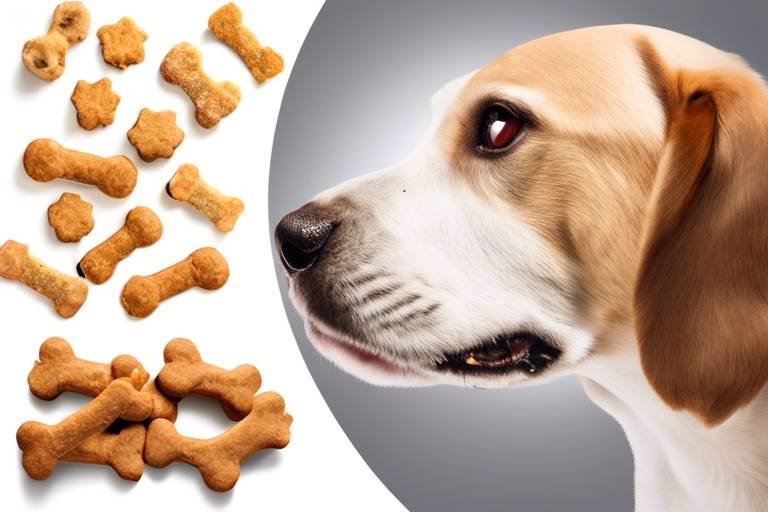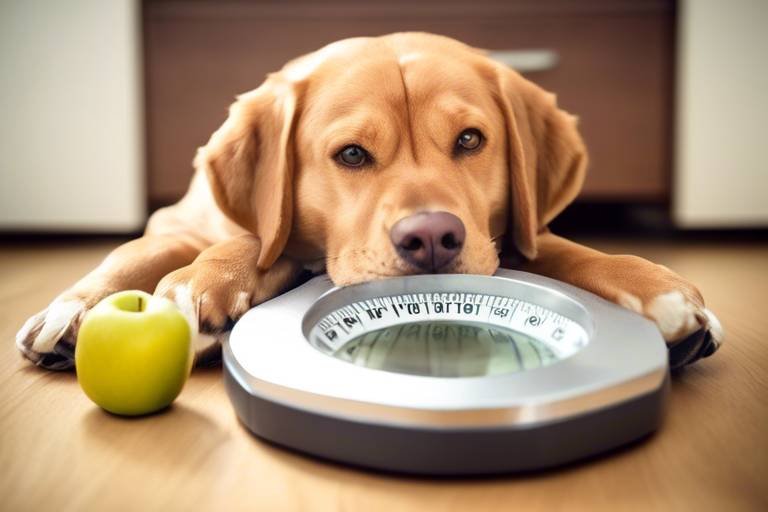The Role of Selenium in Pet Nutrition
Selenium is more than just a buzzword in the world of pet nutrition; it’s a vital trace mineral that plays an essential role in maintaining the health and well-being of our furry companions. Just like humans, pets require a balanced diet that includes a variety of nutrients, and selenium is one of those key players that can’t be overlooked. But what exactly does selenium do for our pets? Well, it supports immune function, aids in reproduction, and contributes to overall health. Understanding the significance of selenium can empower pet owners to make informed dietary choices that promote longevity and vitality in their pets.
Imagine selenium as the unsung hero in your pet’s diet, quietly working behind the scenes to ensure everything runs smoothly. When pets receive adequate selenium, they are better equipped to fend off illnesses, maintain healthy thyroid function, and even reproduce successfully. However, just like a superhero needs the right tools to fight crime, our pets need the right amount of selenium to thrive. Too little selenium can lead to a host of health issues, while the right amount can mean the difference between a lethargic pet and a lively one. Therefore, understanding how to incorporate selenium into your pet's diet is crucial for their overall health.
In this article, we will dive deeper into the sources of selenium, the health benefits it provides, the risks associated with deficiency, and how to determine the right dosage for your pets. By the end of this exploration, you will have a comprehensive understanding of why selenium should be a staple in your pet's nutrition and how to ensure they get enough of it.
Selenium is a trace mineral that plays a significant role in various bodily functions. It acts as a powerful antioxidant, protecting cells from oxidative stress and damage. This is particularly important for pets, as they are often exposed to environmental toxins and stressors that can compromise their health. Moreover, selenium is essential for the proper functioning of the thyroid gland, which regulates metabolism and energy levels. When pets have sufficient selenium, they are more likely to have a robust immune system, allowing them to ward off infections and diseases more effectively.
So, how do we ensure that our pets are getting enough selenium? The answer lies in understanding the sources of this important mineral. Selenium can be found in both animal and plant-based foods, which means there are plenty of options available for pet owners to choose from. Whether your pet is a carnivore, herbivore, or somewhere in between, there are ways to incorporate selenium into their diet.
When it comes to sourcing selenium, variety is key. Here are some of the best sources of selenium for pets:
- Animal Products: Foods like liver, fish, and eggs are rich in selenium and are excellent options for pet owners looking to enhance their pets' selenium intake.
- Meat and Poultry: High-quality sources of meat and poultry not only provide protein but also deliver essential selenium.
- Fish and Seafood: These are not only tasty for pets but also packed with selenium, contributing to their overall well-being.
- Plant-Based Foods: Certain foods, such as Brazil nuts and whole grains, are also rich in selenium, making them beneficial for vegetarian pets.
Incorporating a mix of these foods into your pet's diet can help ensure they receive adequate selenium. However, it’s important to monitor the amount of selenium in their meals, as too much can be just as harmful as too little.
Now that we understand the sources of selenium, let’s explore the health benefits it offers our pets. As mentioned earlier, selenium is a powerful antioxidant. This means it helps combat oxidative stress, which can lead to chronic diseases over time. By neutralizing free radicals, selenium helps keep your pet's cells healthy and functioning optimally.
Furthermore, selenium plays a crucial role in thyroid function. The thyroid gland is responsible for regulating metabolism and energy levels, and without sufficient selenium, it can’t perform its job effectively. A balanced intake of selenium ensures that your pet's thyroid functions properly, keeping their energy levels stable and their growth on track.
While it's clear that selenium is essential, what happens when pets don't get enough of it? A deficiency in selenium can lead to serious health issues, including weakened immunity and reproductive problems. Common signs of selenium deficiency in pets include lethargy, poor coat condition, and reproductive issues. Early detection is crucial for effective treatment and recovery.
Determining the right dosage of selenium for pets varies by species, size, and health status. It's always best to consult a veterinarian for personalized recommendations tailored to your pet's specific needs. General guidelines suggest specific selenium levels for different pet types, and understanding these recommendations helps pet owners provide balanced nutrition.
Q: How can I tell if my pet is getting enough selenium?
A: Look for signs of a healthy coat, energy levels, and overall vitality. If you notice lethargy or poor coat condition, consult your veterinarian.
Q: Can I give my pet selenium supplements?
A: It's best to consult with a veterinarian before starting any supplements. They can guide you on the appropriate dosage and ensure your pet's health is monitored.
Q: Are there any risks associated with too much selenium?
A: Yes, excessive selenium can lead to toxicity, which can cause various health issues. Always aim for a balanced diet and consult your vet for guidance.

The Importance of Selenium
Selenium is a vital trace mineral that plays a crucial role in the overall health and well-being of our beloved pets. Just like humans, pets require a variety of nutrients to thrive, and selenium is one of those unsung heroes that often goes unnoticed. It supports immune function, enhances reproductive health, and contributes to the overall vitality of our furry companions. Understanding its significance can empower pet owners to make informed dietary choices that promote longevity and quality of life.
But why is selenium so important? Well, think of it as the body’s shield against various health issues. It works hand in hand with other essential nutrients to bolster the immune system, helping pets fend off illnesses and infections. Additionally, selenium plays a critical role in the metabolism of thyroid hormones, which are essential for regulating energy levels and maintaining a healthy weight. Without adequate selenium, pets may experience fatigue, lethargy, or even more severe health complications.
Moreover, selenium is known for its antioxidant properties. It helps combat oxidative stress by neutralizing free radicals in the body, which can lead to chronic diseases over time. Just as we take steps to protect ourselves from environmental toxins, our pets also need that extra layer of protection. This is especially true for aging pets or those with pre-existing health conditions, as they may require higher levels of selenium to support their compromised systems.
To further illustrate the importance of selenium, let’s consider the following key benefits:
- Immune Support: Selenium enhances the immune response, making it easier for pets to fight off infections.
- Thyroid Health: It aids in the production of thyroid hormones, which regulate metabolism and energy levels.
- Antioxidant Defense: Selenium protects cells from oxidative damage, promoting long-term health.
In conclusion, incorporating selenium into your pet's diet is not just a good idea—it's essential for their health and well-being. By ensuring your furry friend receives the right amount of this vital mineral, you can help them lead a vibrant, active life filled with joy and energy. Always remember that a little knowledge goes a long way, and understanding the role of selenium is a key step in providing the best possible nutrition for your pets.

Selenium can be found in a variety of food sources, making it relatively easy for pet owners to ensure their furry friends receive this essential trace mineral. It's crucial to understand that not all sources are created equal, and the bioavailability of selenium can vary significantly depending on the food source. For instance, animal-based products tend to have higher concentrations of selenium compared to plant-based options. This means that incorporating a mix of both can help achieve a well-rounded diet for your pets.
Animal-based foods, such as meats and seafood, are among the richest sources of selenium. These foods not only provide the necessary selenium but also come packed with other vital nutrients that support your pet's overall health. On the flip side, certain plant-based foods also contribute to selenium intake, especially for those pets that may follow a vegetarian or vegan diet. Understanding the right balance of these sources can lead to healthier, happier pets.
When it comes to animal products, some of the best sources of selenium include:
- Liver: This organ meat is not only rich in selenium but also contains numerous vitamins and minerals that can enhance your pet's health.
- Fish: Varieties like tuna, salmon, and sardines are not just tasty but also loaded with selenium, making them an excellent choice for pets.
- Eggs: A great source of protein, eggs also provide a healthy dose of selenium, making them a versatile addition to your pet's diet.
Meat and poultry are significant sources of selenium, offering essential nutrients that support pet health. High-quality protein sources such as chicken, turkey, and beef can significantly contribute to your pet's selenium intake. It's important to choose organic or grass-fed options whenever possible, as these tend to have higher selenium levels due to their natural diets.
Fish and seafood are not only tasty for pets but also packed with selenium. Including these in your pet's diet can enhance their overall well-being. Additionally, the omega-3 fatty acids found in fish can promote heart health and reduce inflammation, making it a double win for your furry companions.
Certain plant-based foods, like Brazil nuts and whole grains, are rich in selenium. For pet owners who prefer to incorporate more plant-based options into their pets' diets, these foods can be beneficial. Brazil nuts, in particular, are one of the richest sources of selenium available, but they should be fed in moderation due to their high-fat content. Whole grains, such as brown rice and oats, also provide a decent amount of selenium while contributing to a balanced diet.
In summary, ensuring that your pet receives adequate selenium involves a diverse diet that includes both animal and plant-based sources. By being mindful of these options, you can help support your pet's health and longevity.
Selenium in Animal Products
When it comes to ensuring your furry friends get the right nutrition, animal products play a pivotal role, especially in providing selenium. This essential trace mineral is abundant in various animal-based foods, making them a fantastic option for pet owners who want to boost their pets' health. You might be wondering, "What specific animal products should I consider for my pet?" Well, let’s dive into some of the top sources!
First up, we have liver. Not only is it a nutrient powerhouse, but liver is also one of the richest sources of selenium. Whether you choose beef, chicken, or lamb liver, incorporating this into your pet’s diet can significantly enhance their selenium levels. Just remember to serve it in moderation, as too much can lead to vitamin A toxicity.
Then there’s fish. Many pets adore the taste of fish, and it’s not just a treat; it’s a nutritional boon! Fish like salmon, tuna, and sardines are not only delicious but also loaded with selenium. Plus, they come with the added benefits of omega-3 fatty acids, which support heart health and reduce inflammation in pets.
Another excellent source is eggs. They are not only a complete protein source but also a fantastic way to introduce selenium into your pet's diet. Eggs can be served cooked or raw, depending on your pet's preferences, but ensure they are fresh and sourced from reputable suppliers.
To give you a clearer picture, here’s a quick table summarizing the selenium content in various animal products:
| Animal Product | Selenium Content (mcg per 100g) |
|---|---|
| Liver (Beef) | 50-70 |
| Fish (Salmon) | 30-40 |
| Fish (Tuna) | 60-70 |
| Eggs | 20-30 |
Incorporating these animal products into your pet’s diet can be a game-changer. However, it’s essential to balance their diet with other nutrients as well. While selenium is crucial, too much of it can lead to toxicity, so always aim for a balanced approach. Remember, every pet is unique, and their dietary needs may vary based on their age, size, and health condition.
As you explore the world of pet nutrition, keep in mind that consulting with a veterinarian can provide tailored advice that best suits your pet’s individual needs. After all, a happy pet is a healthy pet!
- What is selenium, and why is it important for pets?
Selenium is a vital trace mineral that supports immune function, reproduction, and overall health in pets. - How can I ensure my pet gets enough selenium?
Incorporate animal products like liver, fish, and eggs into their diet, and consult with your veterinarian for personalized recommendations. - Can too much selenium be harmful to my pet?
Yes, excessive selenium intake can lead to toxicity, so it’s crucial to maintain a balanced diet.
Meat and Poultry
When it comes to providing your furry friends with the nutrition they need, stand out as some of the best sources of selenium. Not only do these protein-packed options offer essential amino acids, but they also deliver a healthy dose of selenium, which is crucial for your pet's overall well-being. Think of meat and poultry as the powerhouses of pet nutrition, fueling your pets with the energy they need to thrive.
High-quality meats like chicken, turkey, and beef are not just tasty treats for your pets; they are also brimming with nutrients that support their health. For instance, chicken liver is particularly rich in selenium, making it a fantastic addition to your pet's diet. It's like giving your pet a superfood that boosts their immune system and keeps them feeling their best. Remember, though, that the source of the meat matters. Opt for organic or free-range options whenever possible, as these tend to have higher nutrient levels compared to conventional meats.
Moreover, incorporating a variety of meats into your pet's diet can help ensure they receive a balanced intake of selenium and other essential nutrients. Consider mixing different types of protein to keep meals exciting and nutritious. Here’s a quick look at some common meat sources and their selenium content:
| Type of Meat | Selenium Content (mcg per 100g) |
|---|---|
| Chicken (cooked) | 24 |
| Turkey (cooked) | 27 |
| Beef (cooked) | 22 |
| Pork (cooked) | 30 |
In conclusion, meat and poultry are not just delicious options for your pets; they are essential components of a balanced diet that supports their health and vitality. By choosing high-quality sources and incorporating a variety of meats, you can ensure your pets are getting the selenium they need to lead happy, healthy lives. So, next time you’re at the store, remember to pick up some fresh meat options for your furry companions!
- How much selenium do pets need? The selenium requirement varies by species and size. Always consult your veterinarian for specific recommendations.
- Can I give my pet too much selenium? Yes, excessive selenium can lead to toxicity. It's essential to maintain a balanced diet and avoid over-supplementation.
- Are there vegetarian sources of selenium? Yes, plant-based options like Brazil nuts and whole grains can provide selenium, but they may not be suitable for all pets.
Fish and Seafood
When it comes to enhancing your pet's diet, stand out as not just delicious options, but also as powerhouses of nutrition. These marine delights are not only appealing to many pets but also boast a rich content of selenium, which plays a vital role in their overall health. Imagine your furry friend enjoying a tasty fish meal while simultaneously receiving essential nutrients that support their immune system and promote longevity. Isn't that a win-win?
Including fish in your pet's diet can be as simple as adding a few servings of cooked fish, such as salmon or sardines, a couple of times a week. Not only does this provide a significant selenium boost, but it also introduces healthy omega-3 fatty acids, which are known for their anti-inflammatory properties. These fatty acids can help with skin health, coat shine, and even joint mobility. Think of omega-3s as the superheroes of pet nutrition, swooping in to save the day!
However, while fish and seafood can be incredibly beneficial, it's essential to choose the right types and prepare them properly. Here are a few key points to consider:
- Freshness Matters: Always opt for fresh or frozen fish rather than processed or canned varieties, which may contain added preservatives or sodium.
- Cooking is Key: Cook fish thoroughly to eliminate harmful bacteria and parasites. Steaming, baking, or grilling are great methods.
- Watch for Bones: Ensure that all bones are removed before serving to prevent choking hazards.
In addition to being rich in selenium, fish and seafood are also excellent sources of protein. This is crucial for maintaining your pet's muscle mass and supporting their energy levels. For pets that may be picky eaters, incorporating fish can add variety to their meals and make them more enticing. Just remember, moderation is the key! Too much of a good thing can lead to imbalances in their diet.
In conclusion, fish and seafood are not just tasty treats but also nutritional powerhouses that can significantly enhance your pet's diet. By providing these foods in a balanced manner, you can help ensure that your furry companions receive the selenium they need for optimal health. So why not treat your pet to a fish feast? After all, they deserve the best!
Q: Can I give my pet raw fish?
A: It's generally not recommended to feed pets raw fish due to the risk of parasites and bacteria. Always cook fish thoroughly before serving.
Q: How often should I include fish in my pet's diet?
A: Fish can be incorporated into your pet's diet a couple of times a week as a supplement to their regular meals, but always consult your veterinarian for personalized advice.
Q: Are there any types of fish I should avoid?
A: Yes, some fish like tilapia and certain types of shellfish may contain higher levels of toxins. It's best to stick with safer options like salmon or sardines.
Selenium in Plant-Based Foods
Selenium isn't just a mineral found in animal products; it also plays a significant role in the diets of our furry friends through various plant-based foods. While meat, fish, and eggs are well-known sources, certain plants can be incredibly rich in selenium, making them excellent additions for pet owners who prefer a more vegetarian or vegan approach to pet nutrition. One of the standout sources of selenium is the Brazil nut, which is not only packed with this essential mineral but also offers a host of other nutrients that contribute to overall health.
In addition to Brazil nuts, whole grains such as brown rice, barley, and wheat germ are fantastic options. These grains not only provide selenium but also offer fiber and other vitamins that can aid in digestion and promote a healthy coat. It's fascinating to note that the selenium content in plant-based foods can vary significantly depending on the soil in which they were grown. For instance, crops cultivated in selenium-rich soils will naturally have higher levels of this vital mineral.
When incorporating plant-based foods into your pet's diet, it’s crucial to remember that moderation is key. Too much selenium can lead to toxicity, so understanding the appropriate amounts is essential. For example, while a few Brazil nuts can be a healthy treat for dogs, they should not make up a large portion of their diet. Instead, consider mixing these selenium-rich foods with other components of a balanced diet.
Here’s a quick overview of some plant-based foods that can boost selenium levels in your pet's diet:
- Brazil Nuts: Extremely high in selenium, but should be given sparingly.
- Whole Grains: Brown rice, barley, and wheat germ provide a good balance of nutrients.
- Spinach and Broccoli: These leafy greens have moderate selenium levels along with other vitamins.
By incorporating these selenium-rich plant-based foods, pet owners can enhance their pets' diets while also ensuring they receive a variety of nutrients. However, always keep in mind that every pet is unique, and their dietary needs can vary. Consulting with a veterinarian can help you determine the best approach to include these foods in your pet's nutrition plan.
1. Can I feed my pet Brazil nuts?
Yes, Brazil nuts are high in selenium, but they should be given in moderation due to their high selenium content. A small piece occasionally can be beneficial.
2. Are there any plant-based foods that are toxic to pets?
Yes, some plants can be toxic to pets, such as onions, garlic, and certain nuts. Always research or consult a veterinarian before introducing new foods into your pet's diet.
3. How can I ensure my pet is getting enough selenium?
Incorporate a variety of selenium-rich foods into their diet, including both animal and plant sources. Regular vet check-ups can also help monitor their nutritional intake.
4. What are the signs of selenium deficiency in pets?
Signs of selenium deficiency can include lethargy, poor coat condition, and reproductive issues. If you notice these symptoms, consult your veterinarian.

Health Benefits of Selenium
Selenium plays a crucial role in the health of our beloved pets, acting as a powerful ally in their overall well-being. This trace mineral is not just a nutrient; it’s a superhero that protects against various health issues. One of the most significant benefits of selenium is its antioxidant properties. Antioxidants are like the body’s defense team, fighting off harmful free radicals that can cause oxidative stress. Just as a knight protects a castle from invaders, selenium shields your pet's cells from damage, which is vital for maintaining long-term health and preventing chronic diseases.
Moreover, selenium is essential for thyroid function. The thyroid gland is responsible for producing hormones that regulate metabolism, growth, and energy levels. Think of it as the engine of your pet’s body—if it’s not running smoothly, everything else can stall. A balanced intake of selenium supports healthy thyroid function, ensuring that your furry friend has the energy to play, explore, and enjoy life to the fullest.
Another remarkable benefit of selenium is its role in enhancing the immune response. A strong immune system is crucial for fighting off infections and diseases. Selenium helps in the production of antibodies and supports the overall function of immune cells. This means that pets with adequate selenium levels are better equipped to fend off illnesses, much like a well-armed warrior ready for battle. By prioritizing selenium in your pet’s diet, you’re essentially fortifying their defenses against potential health threats.
| Health Benefit | Description |
|---|---|
| Antioxidant Properties | Helps combat oxidative stress and cellular damage. |
| Thyroid Function | Supports metabolism, growth, and energy levels. |
| Immune Response | Enhances the production of antibodies and immune cell function. |
In summary, ensuring that your pet receives adequate selenium is not just about meeting nutritional needs; it’s about giving them the best chance at a long, healthy life. So, whether you’re mixing up their meals or choosing treats, keep an eye out for selenium-rich options. Your pet will thank you with wagging tails and playful purrs!
- What are the signs of selenium deficiency in pets? Common signs include lethargy, poor coat condition, and reproductive issues.
- Can I give my pet selenium supplements? It’s essential to consult a veterinarian before adding any supplements to your pet’s diet.
- How can I ensure my pet gets enough selenium? Include selenium-rich foods like fish, eggs, and certain grains in their diet.
- Is selenium safe for all pets? While selenium is essential, the dosage varies by species and size, so professional guidance is crucial.
Antioxidant Properties
Selenium is not just another mineral; it’s a superhero in the world of pet nutrition! This remarkable trace element plays a pivotal role in enhancing the antioxidant defenses of our furry friends. Antioxidants are essential because they combat oxidative stress, which is like the wear and tear on your pet's body caused by free radicals. These free radicals can come from various sources, including pollution, poor diet, and even stress. Think of selenium as a shield that protects your pet's cells from this damage, ensuring they stay healthy and vibrant.
When it comes to the health of our pets, oxidative stress can lead to a myriad of health problems, including chronic diseases and premature aging. By incorporating selenium into their diet, pet owners can provide a natural defense mechanism against these harmful effects. This mineral works synergistically with other antioxidants, such as vitamins C and E, to enhance their effectiveness. Together, they create a powerhouse of protection that helps maintain your pet’s overall health and vitality.
Research has shown that pets with adequate selenium levels often exhibit improved immune responses, which means they are better equipped to fight off infections and illnesses. This is particularly important for older pets or those with pre-existing health conditions. Additionally, selenium's role in antioxidant defense can lead to healthier skin and coat, giving your pet that shiny, vibrant look we all adore. Who doesn’t want their pet to look and feel their best?
To put it simply, ensuring your pet receives sufficient selenium is like giving them a daily dose of vitality. You wouldn’t want to miss out on such an important aspect of their health, would you? As a responsible pet owner, it’s crucial to understand how selenium contributes to your pet’s antioxidant defenses. This knowledge empowers you to make informed dietary choices, ensuring your furry companion enjoys a long, healthy life.
- What are the signs of selenium deficiency in pets?
Common signs include lethargy, poor coat condition, and reproductive issues. If you notice these signs, it's essential to consult your veterinarian. - Can I give my pet selenium supplements?
While supplements are available, it's crucial to consult a veterinarian before introducing them to your pet's diet to avoid toxicity. - Is selenium safe for all pets?
Selenium is generally safe when given in appropriate amounts. However, different species and sizes require different dosages, so always check with a vet. - What foods are high in selenium for pets?
Foods such as liver, fish, eggs, and certain grains like brown rice and whole wheat are excellent sources of selenium.
Thyroid Function
Selenium is not just another mineral; it's a key player in the intricate dance of thyroid function within your pet's body. The thyroid gland, often referred to as the body's metabolic powerhouse, relies heavily on selenium to produce hormones that regulate metabolism, energy levels, and overall growth. Without adequate selenium, your pet's thyroid may struggle to function properly, leading to a cascade of health issues.
Think of selenium as the oil in a well-tuned engine. Just as oil keeps all the parts running smoothly, selenium ensures that the thyroid gland operates efficiently. This mineral aids in the conversion of the inactive thyroid hormone (T4) into its active form (T3), which is crucial for maintaining energy levels and a healthy metabolism. A deficiency in selenium can result in decreased levels of T3, which may lead to symptoms such as weight gain, lethargy, and even hair loss.
Moreover, thyroid dysfunction can manifest in various ways, and recognizing these signs early can make a significant difference in your pet's health. Common indicators of thyroid issues include:
- Weight changes: Unexplained weight gain or loss can signal thyroid problems.
- Energy levels: Noticeable lethargy or hyperactivity may indicate an imbalance.
- Coat condition: A dull, brittle coat can be a sign of insufficient thyroid hormone production.
It's fascinating to note that the body's need for selenium can vary based on factors such as age, diet, and overall health. For example, growing puppies and kittens might require higher levels of selenium to support their developing thyroid function. This highlights the importance of tailoring your pet's diet to meet their specific needs. Consulting with a veterinarian can provide valuable insights into how much selenium your pet requires for optimal thyroid health.
In summary, ensuring that your pet receives adequate selenium is crucial for maintaining proper thyroid function. This not only supports their metabolic health but also contributes to their overall vitality and well-being. By understanding the role of selenium in thyroid function, you can make informed dietary choices that promote a happy, healthy life for your furry companion.
Q: How do I know if my pet is getting enough selenium?
A: Regular veterinary check-ups can help assess your pet's nutrient levels, including selenium. Your vet can recommend dietary adjustments if necessary.
Q: Can I give my pet selenium supplements?
A: While selenium supplements are available, it's crucial to consult with your veterinarian before giving any supplements to ensure they are necessary and safe for your pet.
Q: What are the symptoms of selenium deficiency in pets?
A: Symptoms may include lethargy, poor coat condition, and reproductive issues. If you notice these signs, consult your veterinarian for advice.
Q: Are there specific foods that are high in selenium for pets?
A: Yes, animal products like liver, fish, and eggs, as well as certain plant-based foods like Brazil nuts and whole grains, are excellent sources of selenium.

Risks of Selenium Deficiency
Selenium deficiency in pets is a serious concern that can lead to a variety of health issues. Just like humans, our furry companions rely on essential nutrients to maintain their well-being, and selenium is one of those crucial elements. When pets lack adequate selenium, it can result in a weakened immune system, making them more susceptible to infections and diseases. Imagine your pet's body as a fortress; without the right defenses in place, invaders can easily breach the walls, leading to chaos and illness.
One of the most alarming risks associated with selenium deficiency is its impact on reproductive health. Studies have shown that low selenium levels can lead to reproductive issues in both male and female pets. For instance, male pets may experience decreased fertility, while females could face complications during pregnancy. This scenario is akin to trying to build a house without a solid foundation; without the right support, everything can come crashing down.
Recognizing the signs of selenium deficiency is crucial for pet owners. Common indicators include:
- Lethargy: Pets may seem more tired than usual and less inclined to play or engage.
- Poor coat condition: A lack of selenium can lead to dull, brittle fur.
- Reproductive issues: As mentioned, both male and female pets can experience complications related to reproduction.
It's essential to be vigilant and proactive. If you notice any of these signs in your pet, it may be time to consult a veterinarian for a thorough assessment. Early detection can lead to effective treatment and recovery, ensuring that your beloved companion stays healthy and vibrant.
Moreover, prolonged selenium deficiency can lead to severe health complications. One of the most concerning conditions linked to a lack of selenium is cardiomyopathy, a disease of the heart muscle that can be life-threatening. Think of cardiomyopathy as a ticking time bomb; without the right nutrients, the heart can weaken over time, leading to catastrophic consequences. Ensuring that your pet receives adequate selenium intake can help mitigate these risks and promote longevity.
In summary, the risks associated with selenium deficiency in pets are significant and should not be overlooked. By understanding the importance of this trace mineral and recognizing the signs of deficiency, pet owners can take proactive steps to maintain their pets' health. Remember, a healthy pet is a happy pet!
Q: What are the symptoms of selenium deficiency in pets?
A: Symptoms can include lethargy, poor coat condition, and reproductive issues. If you notice these signs, consult your veterinarian.
Q: How can I ensure my pet gets enough selenium?
A: Incorporate selenium-rich foods into your pet's diet, such as meats, fish, and certain grains. Always consult your veterinarian for personalized dietary recommendations.
Q: Is selenium supplementation necessary for all pets?
A: Not all pets require supplementation. It's important to assess your pet's individual needs with the help of a veterinarian.
Q: Can too much selenium be harmful?
A: Yes, excessive selenium can lead to toxicity. Always stick to recommended dosages and consult your vet before making significant dietary changes.
Signs of Deficiency
Recognizing the signs of selenium deficiency in pets is crucial for early intervention and ensuring their overall health. Just like humans, pets can exhibit various symptoms when they lack essential nutrients. One of the first signs you might notice is lethargy. If your pet seems unusually tired or lacks the usual enthusiasm for play, it could be a signal that something is off. Additionally, you might observe a poor coat condition. Healthy fur should be shiny and vibrant; if it appears dull, brittle, or is shedding excessively, selenium deficiency could be a contributing factor.
Another concerning sign is reproductive issues. In both male and female pets, selenium plays a vital role in reproduction. If you notice a decline in fertility or complications during pregnancy, it’s essential to consider whether your pet is getting enough selenium. Furthermore, pets suffering from selenium deficiency might also experience muscle weakness, which can manifest as difficulty in movement or an unwillingness to engage in physical activities. This weakness can be particularly alarming, as it may lead to more severe health complications if left unaddressed.
To help you better understand the signs of selenium deficiency, here's a quick overview:
| Sign | Description |
|---|---|
| Lethargy | Unusual tiredness or lack of energy. |
| Poor Coat Condition | Dull, brittle fur or excessive shedding. |
| Reproductive Issues | Decline in fertility or complications during pregnancy. |
| Muscle Weakness | Difficulty in movement or reluctance to play. |
It’s important to note that these symptoms can overlap with other health issues, so it’s always wise to consult a veterinarian if you notice any of these signs. Early detection and intervention can make a world of difference in your pet's health and well-being.
- What is selenium, and why is it important for pets?
Selenium is a vital trace mineral that supports immune function, reproduction, and overall health in pets. It acts as an antioxidant and plays a role in thyroid function. - How can I ensure my pet gets enough selenium?
Incorporate selenium-rich foods into your pet's diet, such as fish, meat, eggs, and certain grains. Always consult with a veterinarian for personalized dietary recommendations. - What are the symptoms of selenium deficiency in pets?
Common signs include lethargy, poor coat condition, reproductive issues, and muscle weakness. Early detection is crucial for effective treatment. - Can selenium be toxic to pets?
Yes, while selenium is essential, too much of it can lead to toxicity. Always adhere to recommended dosages and consult a veterinarian.
Long-term Health Consequences
When it comes to the long-term health of our beloved pets, the importance of selenium cannot be overstated. A deficiency in this vital trace mineral can lead to severe health complications, including cardiomyopathy, a condition that affects the heart muscle and can result in heart failure. Imagine your pet, once full of energy and life, becoming lethargic and weak due to something as simple as a lack of selenium in their diet. It's a heart-wrenching thought, isn’t it?
Beyond cardiomyopathy, prolonged selenium deficiency can lead to a variety of other serious health issues. Pets may experience muscle degeneration, which can cause pain and mobility issues, making it difficult for them to enjoy their favorite activities. Additionally, a weakened immune system due to insufficient selenium can leave pets vulnerable to infections and diseases that they would otherwise resist. Think of selenium as a shield; without it, your pet is left exposed to the elements of health threats.
Furthermore, selenium plays a critical role in maintaining the health of the thyroid gland. A deficiency can disrupt thyroid hormone production, leading to hypothyroidism, which can manifest in symptoms such as weight gain, sluggishness, and even skin problems. It’s like watching a vibrant flower wilt due to lack of essential nutrients. The overall vitality of your pet can diminish, affecting not just their physical health but also their mood and behavior.
Recognizing the signs of selenium deficiency early is crucial for effective intervention. If you notice any of the following symptoms in your pet, it could be a sign of trouble:
- Lethargy or decreased activity
- Poor coat condition, such as dullness or excessive shedding
- Reproductive issues, including infertility or complications during pregnancy
Addressing these health concerns promptly can significantly improve your pet's quality of life. It's essential to ensure that your pet's diet is balanced and includes adequate selenium levels, tailored to their specific needs. Regular check-ups with your veterinarian can help catch any deficiencies before they escalate into serious health problems.
Q: How can I ensure my pet is getting enough selenium?
A: Providing a balanced diet that includes selenium-rich foods, such as meat, fish, and certain grains, is key. Always consult with your veterinarian for tailored dietary recommendations.
Q: What are the symptoms of selenium deficiency in pets?
A: Common symptoms include lethargy, poor coat condition, and reproductive issues. If you notice these signs, it’s crucial to consult a veterinarian.
Q: Can I give my pet selenium supplements?
A: While supplements can be beneficial, it’s important to consult your veterinarian before adding any supplements to your pet’s diet to avoid potential toxicity.
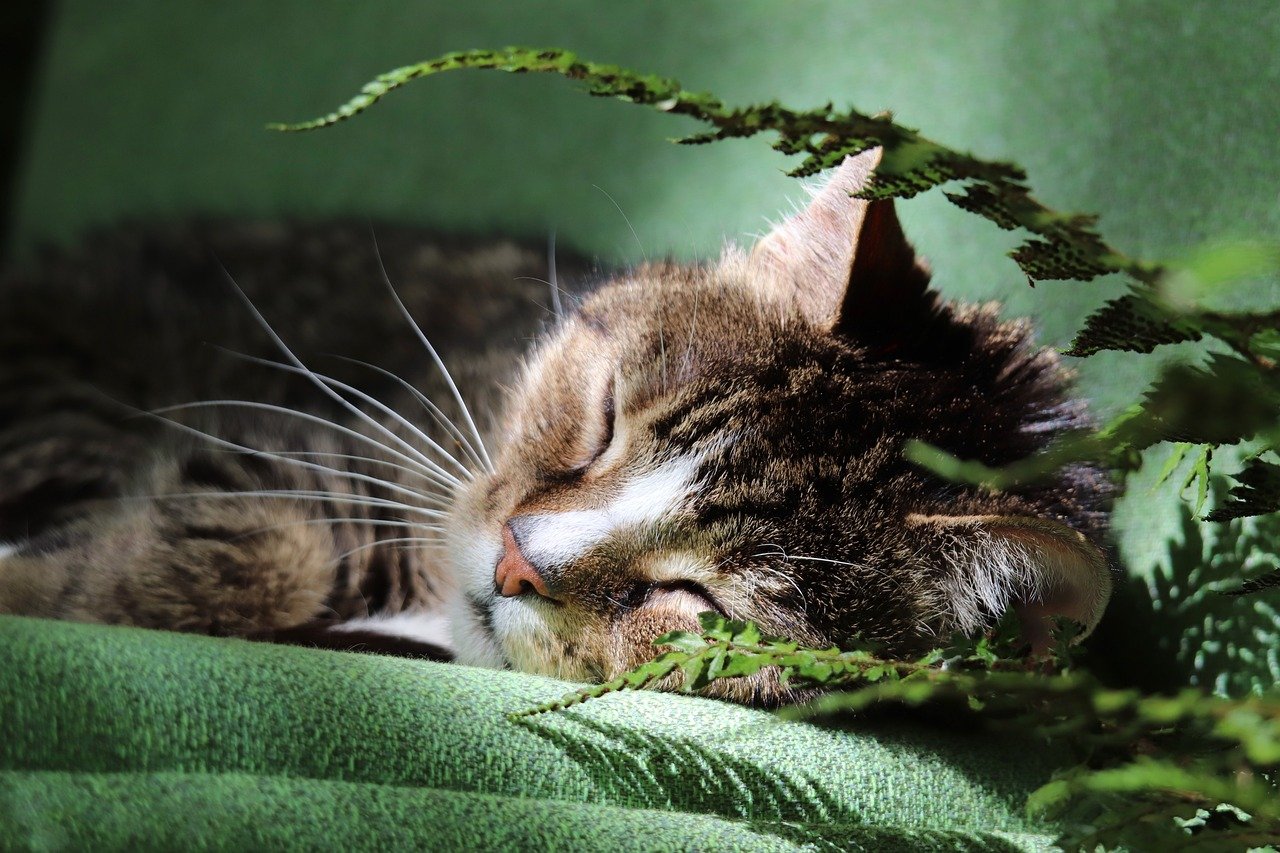
Recommended Dosage for Pets
Determining the right dosage of selenium for pets is crucial for their health and well-being. However, this can vary significantly depending on the pet's species, size, age, and overall health condition. For instance, a small dog may require a different amount of selenium compared to a large breed or a cat. It's essential to understand that while selenium is vital for your pet’s health, too much of it can lead to toxicity. This balance is where consulting a veterinarian becomes invaluable.
General guidelines suggest that the recommended daily allowance (RDA) for selenium in pets can be summarized as follows:
| Pet Type | Recommended Daily Dosage (mcg) |
|---|---|
| Dogs | 0.1 - 0.3 |
| Cats | 0.1 - 0.3 |
| Rabbits | 0.1 |
| Birds | 0.1 - 0.2 |
These values serve as a general framework; however, the specific needs of your pet can differ. For example, growing puppies or kittens may require higher amounts of selenium to support their development. Additionally, pets with certain health conditions may need adjusted dosages, making it even more important to get a tailored recommendation from your veterinarian.
When considering selenium supplementation, it’s essential to monitor your pet for any signs of deficiency or excess. Symptoms of deficiency can include lethargy, poor coat condition, and reproductive issues, while too much selenium can lead to toxicity, which may manifest as gastrointestinal upset or even more severe health problems. Therefore, keeping an eye on your pet's overall health and behavior is key.
In conclusion, while selenium plays a significant role in your pet's nutrition, the right dosage is essential for maximizing its benefits without causing harm. Always consult with a veterinarian to ensure that your furry friend receives the optimal amount tailored to their specific needs.
- What happens if my pet gets too much selenium?
If your pet ingests too much selenium, it can lead to toxicity, causing symptoms such as vomiting, diarrhea, and lethargy. In severe cases, it can affect organ function. - Can I give my pet selenium supplements?
Yes, but it is crucial to consult with a veterinarian before starting any supplements to ensure they are necessary and to determine the correct dosage. - How can I tell if my pet is getting enough selenium?
Regular check-ups with your veterinarian can help monitor your pet's nutritional status. Signs of adequate selenium levels include a healthy coat, good energy levels, and overall well-being.
General Guidelines
When it comes to ensuring your furry friends receive the right amount of selenium, understanding the is crucial. Selenium is not a one-size-fits-all nutrient; its requirements can vary significantly based on factors such as the pet's species, age, size, and overall health. For instance, dogs and cats have different selenium needs, and even within those categories, larger breeds may require more than smaller ones. As a rule of thumb, the recommended dietary allowance (RDA) for selenium in pets often falls within specific ranges, which can be summarized as follows:
| Pet Type | Recommended Daily Intake (micrograms) |
|---|---|
| Dogs | 0.1 - 0.3 |
| Cats | 0.1 - 0.2 |
| Rabbits | 0.1 |
| Birds | 0.1 - 0.2 |
These values are merely guidelines, and individual pets may have different needs. For example, pregnant or nursing pets often have higher selenium requirements due to the demands of growth and lactation. Therefore, it’s essential to monitor your pet’s health and adjust their diet accordingly.
Another important aspect is the source of selenium. While many commercial pet foods are formulated to meet the necessary requirements, it’s always a good idea to check the ingredient list. Foods rich in selenium, such as meat, fish, and certain grains, should be included in your pet’s diet. However, if you’re considering supplements, it’s crucial to consult with your veterinarian. Over-supplementation can lead to toxicity, which can have serious health implications.
Lastly, always remember that consultation with a veterinarian is key. They can provide personalized recommendations based on your pet’s specific needs, ensuring that their selenium intake is balanced and appropriate. By following these general guidelines, you can help maintain your pet’s health and well-being, allowing them to thrive and live a happy life.
- What are the signs of selenium deficiency in pets?
Common signs include lethargy, poor coat condition, and reproductive issues. If you notice these symptoms, consult your vet promptly. - Can I give my pet selenium supplements?
While supplements can be beneficial, it's essential to consult your veterinarian first to determine the appropriate dosage and avoid toxicity. - Is selenium safe for all pets?
Yes, but the dosage varies by species and individual health needs. Always follow your vet's advice. - How can I ensure my pet gets enough selenium?
Provide a balanced diet that includes selenium-rich foods like meat, fish, and certain grains, and consult your vet for tailored advice.
Consulting a Veterinarian
When it comes to the health and nutrition of your beloved pets, consulting a veterinarian is not just a suggestion; it's an essential step in ensuring their well-being. Veterinarians are equipped with the knowledge and expertise needed to assess your pet's individual needs, including their dietary requirements for selenium and other vital nutrients. Just like humans, pets have unique health profiles that can influence their nutritional needs. For instance, a growing puppy will have different selenium requirements compared to a senior dog or a pregnant cat.
Moreover, veterinarians can help identify any underlying health issues that may affect how your pet absorbs or utilizes selenium. This is particularly important because some pets may have medical conditions that require specific dietary adjustments. For example, pets with thyroid issues might need a tailored selenium intake to support their hormone levels effectively. Therefore, a one-size-fits-all approach to nutrition is rarely sufficient.
During your consultation, be prepared to discuss various aspects of your pet's health, including:
- Age and breed
- Current diet and any supplements
- Activity level
- Any existing health conditions
This information will enable the veterinarian to provide personalized recommendations that align with your pet's specific needs. It's also a good opportunity to ask questions about the sources of selenium, the potential risks of deficiency, and how to incorporate selenium-rich foods into your pet's diet safely.
Remember, your veterinarian is your ally in promoting your pet's health. They can guide you in making informed decisions about dietary changes, ensuring that your furry friend receives the right amount of selenium without overdoing it. So, don’t hesitate to reach out and schedule that important appointment—your pet's health is worth it!
Here are some common questions pet owners have regarding selenium and pet nutrition:
- What are the signs of selenium deficiency in pets? Common signs include lethargy, poor coat condition, and reproductive issues.
- Can I give my pet selenium supplements? It's best to consult with a veterinarian before administering any supplements.
- Are there specific foods I should avoid for selenium intake? Generally, most commercial pet foods contain adequate levels of selenium, but always check with your vet.
Frequently Asked Questions
- What is selenium, and why is it important for pets?
Selenium is a vital trace mineral that plays a significant role in supporting your pet's immune function, reproduction, and overall health. Just like how we need certain nutrients to thrive, pets also require selenium to maintain their well-being and fight off illnesses.
- What are the best sources of selenium for pets?
There are several excellent sources of selenium that you can include in your pet's diet. Animal products like liver, fish, and eggs are particularly rich in this essential mineral. Additionally, certain plant-based foods such as Brazil nuts and whole grains can also provide a good amount of selenium.
- How can I tell if my pet is selenium deficient?
Common signs of selenium deficiency in pets include lethargy, poor coat condition, and reproductive issues. If you notice any of these symptoms, it’s crucial to consult your veterinarian for a proper diagnosis and treatment plan.
- What are the health benefits of selenium for pets?
Selenium offers numerous health benefits, including antioxidant properties that help combat oxidative stress, support for thyroid function, and enhancement of the immune response. These benefits can significantly contribute to your pet's long-term health and vitality.
- How much selenium should my pet be getting?
The recommended dosage of selenium varies depending on your pet's species, size, and health status. It's always best to consult your veterinarian for personalized recommendations to ensure your pet is getting the right amount of selenium for optimal health.
- Can I give my pet selenium supplements?
While selenium supplements can be beneficial, it’s essential to consult with your veterinarian before adding them to your pet's diet. Over-supplementing can lead to toxicity, so professional guidance is key to providing safe and effective nutrition.
- Are there any risks associated with selenium deficiency?
Yes, a deficiency in selenium can lead to serious health issues, including weakened immunity and reproductive problems. Prolonged deficiency can even result in severe complications like cardiomyopathy, making it vital to ensure your pet receives adequate selenium in their diet.

